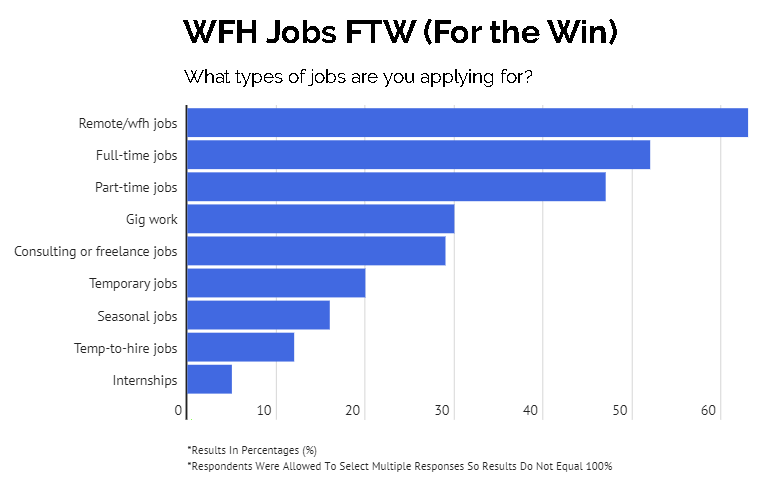
In a new Zippia survey of 500 workers, more than half of the respondents said they were looking for jobs that allow them to work from home.
Thanks to the pandemic, the “future of work” is very much here and now. In a new Zippia survey of 500 workers from diverse industries across the U.S., the career resource website explored what workers want (and expect) in a post-COVID-19 job market. The answer? Flexibility is no longer just a perk. “For many workers,” the report noted, “it is now a deal breaker.” Here are some of the survey’s key findings:
 Sixty-three percent of respondents said they are looking for work-from-home opportunities, and half said working remotely is their ideal work environment. Only 11 percent of respondents said that the availability of remote work in some capacity was not important to them, while nearly nine out of 10 respondents said that a lack of remote work flexibility is a deal breaker or a serious problem.
Sixty-three percent of respondents said they are looking for work-from-home opportunities, and half said working remotely is their ideal work environment. Only 11 percent of respondents said that the availability of remote work in some capacity was not important to them, while nearly nine out of 10 respondents said that a lack of remote work flexibility is a deal breaker or a serious problem.
If workers can’t work from home, they want at least a short commute. According to the survey, 73 percent said a long commute prevented them for applying for a job — followed by a company’s reputation (55 percent), a too-vague job description (43 percent), and poor benefits (41 percent).
The most desirable job benefit in early 2020 was health insurance, according to Zippia. But experiencing the pandemic has made a flexible work environment jump to the top of workers’ list of priorities — 59.4 percent of respondents said it was the most desirable benefit compared to 59 percent who cited health-care coverage first. Again, remote work proved to be important to job seekers, with 58 percent of respondents listing it as a desirable benefit, ahead of retirement benefits (46 percent).
These findings among U.S. workers match up with other workforce research conducted in 2021 across the pond — according to U.K.-based workspace occupancy and analytics firm Locatee, for example, a survey of 1,000 U.K. office workers found that only 17 percent wanted to return to the office full-time, and those reluctant to return would need a salary boost of 4,000 euros (approximately $4,700) to be persuaded to go back.
Casey Gale is associate editor at Convene.
